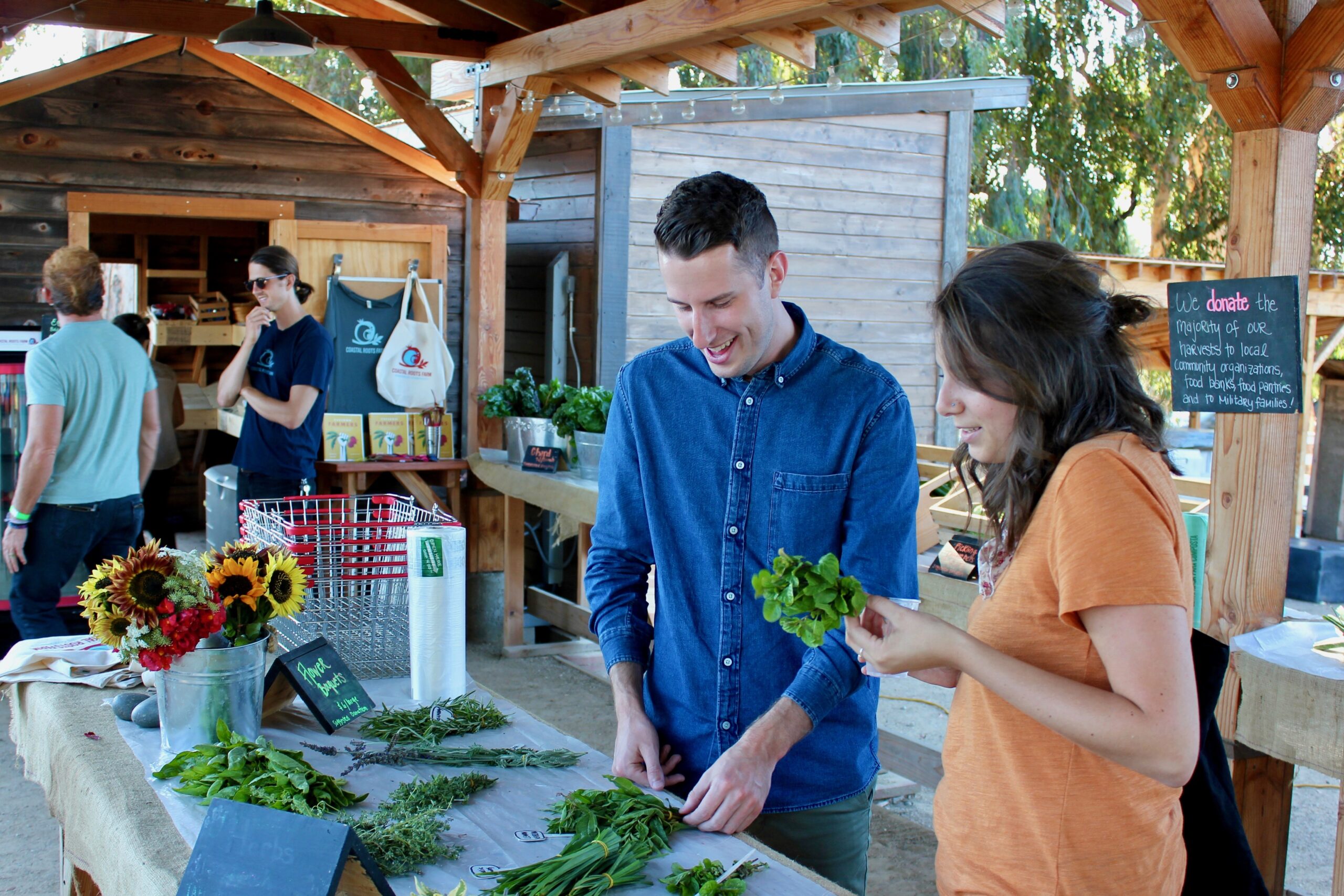—
Daron “Farmer D” Joffe, founding director of Coastal Roots Farm, writes about the power of community farms to transform neighborhoods.
When it comes to building successful communities, there is one vital aspect to consider that nourishes both the body and the collective soul—food. Food has been as the core of community since the beginning of time. Growing and sharing food is a powerful platform for nurturing the physical and social health of individuals and communities.
Of course, everyone eats. But, what is unique today is that awareness of food has grown so that more people want to know where their food comes from. They want it to be healthy and clean and be a part of creating a more sustainable and just food system. That awareness is what is currently transforming neighborhoods across the nation into hubs where agriculture is celebrated and community farms and gardens are integrated.
The movement to grow neighborhoods around the concept of fresh, sustainable foods is cropping up in communities throughout the country. One example is Serenbe, a progressive community connected to nature on the outskirts of Atlanta full of fresh food, fresh air and focused on well-being. Serenbe’s architectural planning sets a new standard for community living.
The neighborhood features four hamlets focused on the elements of a well-lived life: the arts, agriculture, health, and education. Fresh food is one of Serenbe’s natural assets, with a 8-acre organic farm, seasonal Saturday Farmer’s Market, thriving CSA program and edible landscaping, including blueberry bushes along paths and sidewalks.
To explore these issues, the Urban Land Institute (ULI) convened members and experts working in food, real estate development, local government, public health, and other related professions in 2016 for two inaugural food and real estate forums.
“We recognize the importance of creating communities that are safe, sustainable, wholesome and nourishing for residents. That’s why we are committed to educating and supporting land developers and builders so that these innovative neighborhoods can realize their full potential,” said Kendra Chandler, Executive Director, Urban Land Institute Orange County/Inland Empire.
These and similar efforts are also bringing local farmers to the table. Community farmers can be the catalysts for social change, environmental change and educational change. The idea is not a new one. The Community Supported Agriculture (CSA) concept began in Japan and eventually made its way to the U.S. in the 1980s.
Community Supported Agriculture, or CSA, is an initiative where consumers make a seasonal investment in a local farm and in exchange receive a weekly share of the harvest. The farmer sells direct to the consumer, reducing the cost and impact of distribution and fostering a relationship between farmers and consumers.
Today’s community farm takes the CSA model to the next level with a focus on health, wellness, and how food is grown and prepared, thereby allowing the farm a direct and impactful connection to the community.
Coastal Roots Farm is an example of a nonprofit community farm and education center where more than half of the food grown is donated for the benefit of community members who lack access to fresh food through its local CSA, pay-what-you-can farm stands and direct donations to local food pantries.
Chandler added: “It’s exciting to see how these ideas are taking root in communities across the country. Whenever you can touch the future, there is true meaning.”
—
(This post is excerpted from the magazine Builder and Developer. Coastal Roots Farm partners with ULI San Diego-Tijuana, whose mission is to provide leadership in the responsible use of land and to create and sustain thriving communities worldwide. Read the full article online.)
